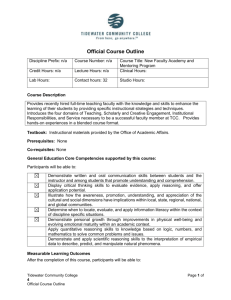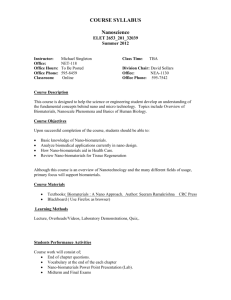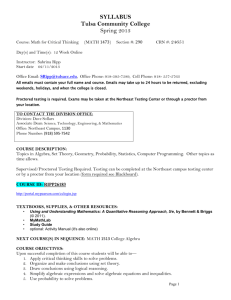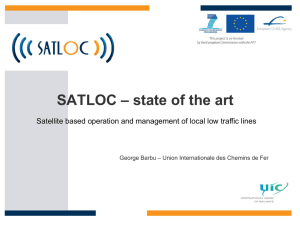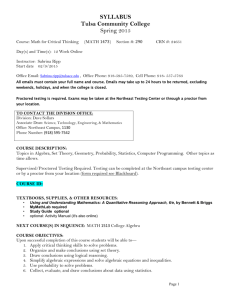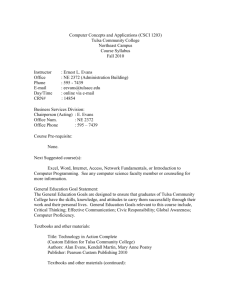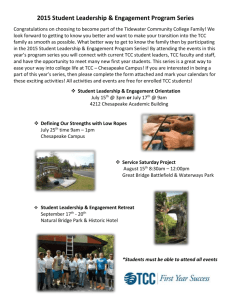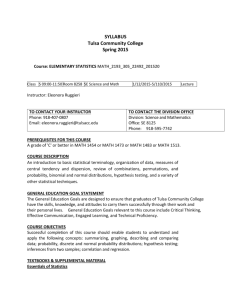Course Schedule - Tidewater Community College
advertisement
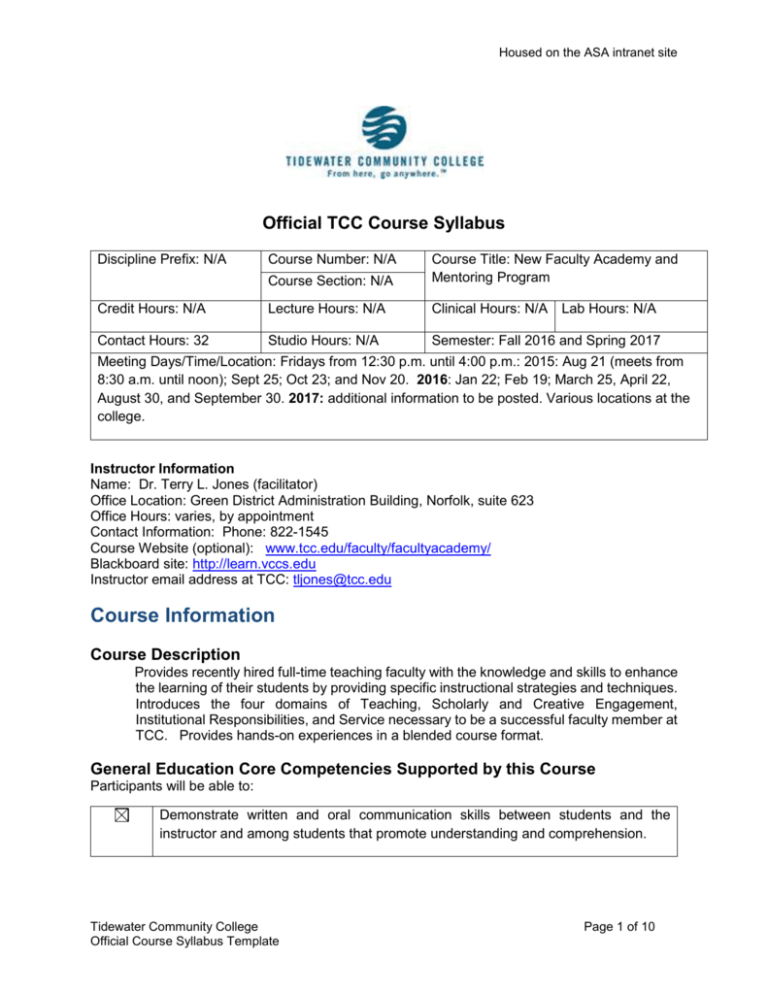
Housed on the ASA intranet site Official TCC Course Syllabus Discipline Prefix: N/A Course Number: N/A Course Section: N/A Course Title: New Faculty Academy and Mentoring Program Credit Hours: N/A Lecture Hours: N/A Clinical Hours: N/A Contact Hours: 32 Studio Hours: N/A Semester: Fall 2016 and Spring 2017 Lab Hours: N/A Meeting Days/Time/Location: Fridays from 12:30 p.m. until 4:00 p.m.: 2015: Aug 21 (meets from 8:30 a.m. until noon); Sept 25; Oct 23; and Nov 20. 2016: Jan 22; Feb 19; March 25, April 22, August 30, and September 30. 2017: additional information to be posted. Various locations at the college. Instructor Information Name: Dr. Terry L. Jones (facilitator) Office Location: Green District Administration Building, Norfolk, suite 623 Office Hours: varies, by appointment Contact Information: Phone: 822-1545 Course Website (optional): www.tcc.edu/faculty/facultyacademy/ Blackboard site: http://learn.vccs.edu Instructor email address at TCC: tljones@tcc.edu Course Information Course Description Provides recently hired full-time teaching faculty with the knowledge and skills to enhance the learning of their students by providing specific instructional strategies and techniques. Introduces the four domains of Teaching, Scholarly and Creative Engagement, Institutional Responsibilities, and Service necessary to be a successful faculty member at TCC. Provides hands-on experiences in a blended course format. General Education Core Competencies Supported by this Course Participants will be able to: Demonstrate written and oral communication skills between students and the instructor and among students that promote understanding and comprehension. Tidewater Community College Official Course Syllabus Template Page 1 of 10 Housed on the ASA intranet site Display critical thinking skills to evaluate evidence, apply reasoning, and offer application potential. Illustrate how the awareness, promotion, understanding, and appreciation of the cultural and social dimensions have implications within local, state, regional, national, and global communities. Determine when to locate, evaluate, and apply information literacy within the context of discipline specific situations. Demonstrate personal growth through improvements in physical well-being and evolving emotional maturity within an academic context. Prerequisites and/or Co-requisites None. Required Course Texts and Supplementary Materials See New Faculty Academy Blackboard website for readings and assignments. Measureable Course Learning Outcomes After completion of this course, participants will be able to: 1. Design and manage a classroom environment that contributes to students’ abilities to engage fully in learning. 2. Design courses that help students learn the skills, issues, and concepts they will need to succeed in their educational plan. 3. Demonstrate an understanding of teaching methods that encourage students to be actively engaged throughout a learning experience. 4. Demonstrate an understanding of the selection and use of appropriate instructional technologies for enhancing student learning. 5. Design assessments that effectively measure student learning outcomes in the course. 6. Develop and implement an Annual Performance and Professional Development Plan. 7. Demonstrate scholarly and creative engagement practices consistent with a college teaching faculty member. 8. Demonstrate effective participation in the institution and in service to the community and the college. Topics Covered in the Course 1. Overview of course and requirements The TCC Performance and Professional Development Plan Mentoring Roles, Responsibilities, and Expectations Academy Requirements Introduction to Blackboard and SIS Functions for Faculty Tidewater Community College Official Course Syllabus Template Page 2 of 10 Housed on the ASA intranet site Email and classroom technology available for instruction 2. Instructional Design and Delivery How People Learn Alignment of course outcomes with curricular and General Education outcomes Writing Effective Learning Outcomes Designing the Syllabus: i-INCURR at TCC Knowing Your Students: An overview of TCC Students Instructional Strategies and Student Engagement Effective Classroom Pedagogy Promoting Civility in the Classroom Responding to Student Questions Academic Integrity 3. Instructional Effectiveness Assessment: Class, Course, and Curriculum Early Student Feedback in your Classes Assessing Teaching: Data Sources and Documenting Teaching Effectiveness Student Evaluations: What do they Mean and How to Use Them to Improve Instruction Documenting Teaching Effectiveness through an eTeaching Portfolio 4. Instructional Expertise Understanding and Applying Pedagogy Introduction to Online/Hybrid Teaching Requirements at TCC The eTeaching Portfolio: Documenting Your Instructional Expertise Promotion and the Career Path: Requirements and Planning 5. Scholarly and Creative Engagement The Scholarship of Teaching and Learning: What Is It? Scholarly Societies, Publications, Presentations, and Exhibits Grant Writing 6. Institutional Responsibilities and Service Student Success Strategies Students Outside the Classroom: Clubs and Activities and Interaction with Students Collegial Governance at the College and Service to your Campus and Division VCCS Peer Groups Community Service: What Is It? The Annual Performance and Professional Development Plan (APPDP): Planning Professional Development for the Second Year at TCC Tidewater Community College Official Course Syllabus Template Page 3 of 10 Housed on the ASA intranet site Description of Assignments/Assessments 1. Developing course learning outcomes exercise 2. How to design a course that is appropriately aligned 3. The annotated syllabus exercise 4. Developing an eTeaching Portfolio for evaluation and professional development 5. Understanding appropriate active learning strategies for student engagement 6. College and community service 7. Produce a eTeaching Portfolio 8. Write an APPDP for 2017 9. Enroll in and complete the TOP-ELITE online training program 10. Enroll in and complete the General Education assessor training Course Schedule The following course schedule may change due to the progression of the course. The course schedule may change at the discretion of the facilitator; however, participants will be notified via email and Blackboard when any changes/additions are made to the schedule. Participants are expected to attend all sessions of the course unless specifically excused by the facilitator. The following is schedule of the course meeting dates, times, and locations with topics. Assignments will be posted on Blackboard with due dates. AUG 21 Overview of course and requirements Academy Requirements The Performance and Professional Development Plan Introduction to Blackboard and SIS Functions for Faculty Email and classroom technology available for instruction SEPT 25 Teaching Domain: Instructional Design A. How People Learn B. Tyranny of Content C. Alignment: course outcomes, curricular outcomes, general education outcomes, VCCS and TCC mission D. Writing Effective Course Learning Outcomes (handout and assignment) E. Knowing Your Students: An Overview of TCC Students Tidewater Community College Official Course Syllabus Template Meet in room 4210, Chesapeake Campus from 8:30 a.m. until noon (prior to the collegewide Convocation) Meet in College Board Conference Room, 6th floor, Green District Administration Bldg., 121 College Place, Norfolk Page 4 of 10 Housed on the ASA intranet site F. New Faculty Performance and Professional Development Plan OCT 23 Teaching Domain: Instructional Delivery A. Classroom Technology B. Active Learning Strategies: Student Engagement C. Learning Styles and Instructional Delivery (reading assignment) D. Effective Pedagogy in the Classroom E. Promoting Civility in the Classroom (reading assignment) F. Responding to Student Questions (reading assignment) G. Academy Integrity H. Review assignments from September (annotated syllabus and learning outcomes) NOV 20 Teaching Domain: Instructional Effectiveness A. Assessment: Class/ Course/ Curriculum (reading assignment) B. AAHE’s Nine Principles of Good Practice for Assessing Student Learning (reading assignment) C. Early Student Feedback in Your Classes D. Assessing Teaching: Data Sources (students, peers, self, dean/director) E. Documenting Teaching Effectiveness: The eTeaching Portfolio (assignment) F. Student Evaluations: What Do They Mean and How to Use Them (reading assignment) JAN 22, 2016 Teaching Domain: Instructional Expertise Tidewater Community College Official Course Syllabus Template Meet in room 2610, Martin Building, Norfolk Campus Meet in the Forum, Building A of the Portsmouth Campus Meet in room MN104, Health Professions Page 5 of 10 Housed on the ASA intranet site A. Promotion and the Career Path: College and VCCS Policies and Procedures B. Understanding and Applying Pedagogy C. Coursework, Workshops, Certifications D. Teaching Online and/or Hybrid Courses: An Introduction to College Requirements E. Follow-up on Developing The eTeaching Portfolio assignment FEB 19 Scholarly and Creative Domain A. The Scholarship of Teaching and Learning (reading assignment) B. Scholarly Societies, Publications, Presentations, and Exhibits C. Grant Writing MAR 25 Institutional Responsibilities and Service Domains A. Students Outside the Classroom: Clubs and Activities B. Interaction with Students: Effective Office Hours and Advising C. Collegial Governance at TCC D. College, Campus, and Divisional Committees E. VCCS Peer Groups F. Community Service: What is it? G. Update on Annotated Syllabus and Teaching Portfolio assignments APR 22 Celebration, Evaluation, and Next Steps Tidewater Community College Official Course Syllabus Template Building, Virginia Beach Campus Meet at the Visual Arts Center in Olde Towne Portsmouth Meet in Conference Room (left from lobby after entering the main building) of the Regional Automotive Center in Chesapeake Meet in the Student Center, rooms Page 6 of 10 Housed on the ASA intranet site 124-126 (first floor), Portsmouth Campus AUG 30 Meeting to finalize eTeaching Portfolio SEPT 30 eTeaching Portfolio final review and compose 2017 APPDP SPRING 2017 Norfolk Campus, room TBD Chesapeake Campus, room TBD Complete TOP-ELITE training and training as General On your schedule Education assessor Blackboard and Course Communication Please check the New Faculty Academy Blackboard site weekly and look for announcements, emails, and/or discussions. In this course, the reading materials will be read outside of class and the time in the workshop given to interaction as much as possible. Thus keeping current with the Blackboard site in imperative. In addition, my contact information is accessible on Blackboard and I will respond to your calls or emails with one business day. Course Policies 1. Attendance Policy: All participants are expected to be present and on time at all scheduled meetings. 2. Late Work/Make-up Exam Policy: N/A 3. Statement on Classroom Behavior: TCC is committed to maintaining a social and physical environment conducive to carrying out its education mission. Therefore, all members of the TCC community are expected to demonstrate standards for civility. Be moderate in speaking. Loud, obscene, argumentative, or threatening speech is disruptive to teaching and learning and is offensive to others. It has no place in an academic setting. Resolve any disagreements in a positive, non-combative manner. Request the assistance of college authorities if needed. Show respect for the comfort of others in an educational setting by observing acceptable standards for personal cleanliness and dress. 4. Electronic Devices Policy: Cell phones, pagers, and other communication devices are prohibited from use in classrooms, laboratories, and libraries, unless authorized by the appropriate faculty. Although soundless communication devices such as cell phones and pagers are permissible in classrooms, college offices, and/or meeting rooms, they must not be answered during class. 5. Inclement Weather/Emergent Hazardous Conditions Tidewater Community College Official Course Syllabus Template Page 7 of 10 Housed on the ASA intranet site Tidewater Community College uses TCC Alerts to immediately contact and inform faculty, staff and students of a major crisis or emergency. TCC Alerts delivers important emergency alerts, notifications, and updates via: Email account (work, home, other) Cell phone Pager Smartphone/PDA (BlackBerry, Treo & other handhelds) When an incident or emergency occurs, authorized senders will be instantly notified via TCC Alerts. TCC Alerts is a personal connection to real-time updates, instructions on where to go, what to do, or what not to do, who to contact, and other important information. New users may also register by sending a text message to 411912 keyword: TIDEWATER. To cancel the service, text TIDEWATER STOP to 411911. [Required] According to provisions of TCC Policy 1401 Inclement Weather/Emergency Hazardous Condition, please note that in case of a closure of the college or campus where a meeting is scheduled for any reason, the Academy will not meet and the Facilitator will communicate to the group via Blackboard about work missed that day. For example if the college announces a closure at 1:30 p.m., the meeting of the Academy will not be held and members should look for a communication from the Facilitator. Of course, if the closure announcement comes during the meeting time, the Academy will immediately cancel the rest of the meeting. 6. Disposition of Classes for Emergency Shutdown of the College: In the event of an emergency shutdown of the college, the president and her executive staff may elect to conclude the term in session if eighty-five percent or more of that term has been completed. If the term in session is concluded, faculty shall compute final grades of students based on coursework completed at that point. Grade Policy: While no grade is assigned for this course, the members are to complete all readings and assignments as posted in Blackboard in order to obtain the Certificate of Completion at the end of the workshops. Failure to obtain the Certificate requires that the member complete the missing work within the next semester and could impact the evaluation of the faculty member. Academic Policies Students are responsible for being aware of the policies, procedures, and student responsibilities contained within the current edition of the TCC Catalog and Student Handbook. Students should familiarize themselves with the college's policies regarding misconduct and inclement weather found in the Student Handbook. Withdrawal Policy: N/A Tidewater Community College Official Course Syllabus Template Page 8 of 10 Housed on the ASA intranet site Academic Integrity TCC will expect students to demonstrate personal and academic integrity, to be open to new ideas, and to share in a community where individuals from diverse backgrounds and cultures help one another grow intellectually, socially, and personally. TCC expects students to achieve, not just to get by. And while many caring and talented faculty and staff are here to help, students must take responsibility for their own learning. Students should strive for a high level of academic performance and to be responsible, contributing citizens within the college and in outside communities. Above all, TCC wants students to develop a love of learning that will last a lifetime, along with a life-long interest in maintaining emotional and physical wellness. Student Outcomes Assessment Requirement Work products submitted by participants to fulfill Academy requirements may be used by the college to evaluate The New Faculty Academy and Mentoring Program. Statement on Plagiarism and Academic Misconduct Academic misconduct includes, but is not limited to, the following actions: cheating on an examination or quiz—either giving or receiving information; copying information from another person for graded assignments; using unauthorized materials during tests; collaboration during examinations; buying, selling or stealing examinations; arranging a substitute for oneself during examinations; substituting for another person, or arranging such a substitution; plagiarism—the intentional or accidental presentation of another’s words or ideas; collusion with another person or persons in submitting work for credit in class or lab, unless such collaboration is approved in advance by the instructor. Faculty members who have reliable evidence of academic misconduct will (1) investigate the matter, and (2) review the facts of the matter and the proposed penalty with the appropriate academic dean. They may then take one or more of the following actions: Require the work to be accomplished again Give no credit for the test, paper, or exercise Assign a grade of F, U, or W for the course Refer the matter to the campus Dean for Student Services or designee for possible disciplinary sanction through the college’s disciplinary procedure If the faculty member chooses to refer the matter to the campus Dean for Student Services or designee for disposition, the Plenary Disciplinary Procedure shall be followed, and the student’s dismissal from the college is a possibility. Educational Accessibility Students who have documented, diagnosed disabilities, and who need special accommodations for tests, etc., are advised to see the Educational Accessibility Disabilities Services staff in Student Services so that the instructor may be notified of what accommodations are appropriate in each case. Requests for accommodations should be made to the designated campus Educational Accessibility counselor at least 45 days before classes begin. Documentation must be provided to support the need for accommodations. For assistance with disabilities, contact the campus Educational Accessibility Counselor/Provider or the Coordinator of Educational Accessibility Services: call 822-1213, visit Student Tidewater Community College Official Course Syllabus Template Page 9 of 10 Housed on the ASA intranet site Services/Development, or visit the Educational Accessibility http://www.tcc.edu/students/specialized/disabilityservices/index.htm webpage at Emergency Procedures In the event of a bomb threat, tornado, or fire, students and staff may be asked to evacuate the building or move to an internal assembly area location within the building. Evacuation routes are posted in each classroom. The map indicates the route to the internal assembly area as well as the route to the nearest exit and location of the Emergency Assembly Area. Students should review the maps and make sure that the exit routes for the building are clearly understood. The information regarding locations of the Emergency Assembly Areas and Internal Assembly Areas for all classrooms or spaces used on the various campuses is available at the following link: http://www.tcc.edu/emergency/cemp.htm. If you will require assistance during an evacuation, let your instructor know at the end of the first class. . Student Success Resources The following resources are available to TCC students. See the Student Handbook or visit http://www.tcc.edu/forms/handbook/ for more information about student services and locations. Library A library is located at each TCC campus and at the Visual Arts Center. These libraries are intended for research and study, and they contain materials in print and digital format to support the courses, curricula, and mission of the college. The research materials include books, newspapers, magazines, journals, DVDs, streaming media and an extensive collection of indexes, abstracts and full-text databases. Faculty members may place materials on reserve in the libraries for their students. Visit this site for more information: www.tcc.edu/library/ Academic Support Services Each campus provides various kinds of academic assistance. One-on-one tutoring, math and computer labs, and other forms of individual and group assistance may be available. Students can also find free help for writing, from short questions about commas and comma splices to a comprehensive review of research papers in progress, in the Writing Centers. Online Help Desk Visit the following Distance Learning Resources for Students website for information about computer skills, technical support, library services for online students, and much more: http://www.tcc.edu/eLearning/ Important Websites College Website: www.tcc.edu Blackboard and Student E-mail: https://tcc.my.vccs.edu/jsp/home.jsp Student Handbook: http://www.tcc.edu/forms/handbook/ TCC Catalog: http://www.tcc.edu/forms/catalog/ Class Schedule: http://www.tcc.edu/schedule/ (or log-in to SIS for current course offerings) Academic Calendar: http://www.tcc.edu/students/calendar/academic/index.htm eLearning Resources: http://www.tcc.edu/eLearning For current financial aid information and assistance, visit http://www.tcc.edu/students/finaid/ or http://studentaid.ed.gov/. Tidewater Community College Official Course Syllabus Template Page 10 of 10

